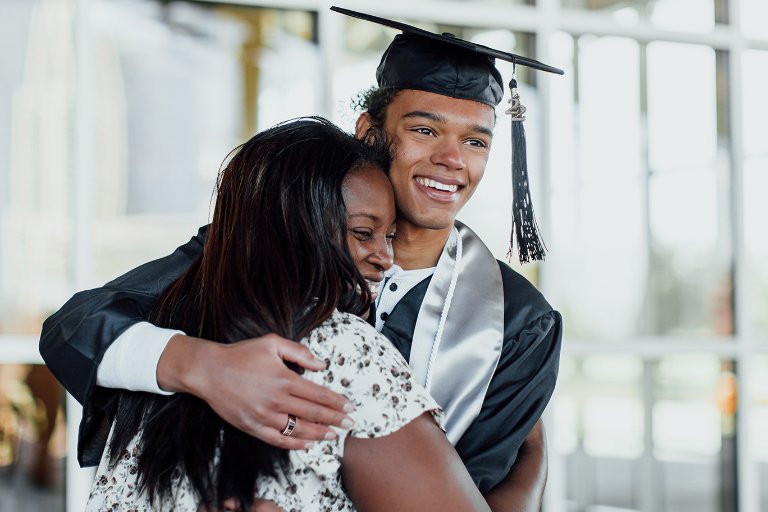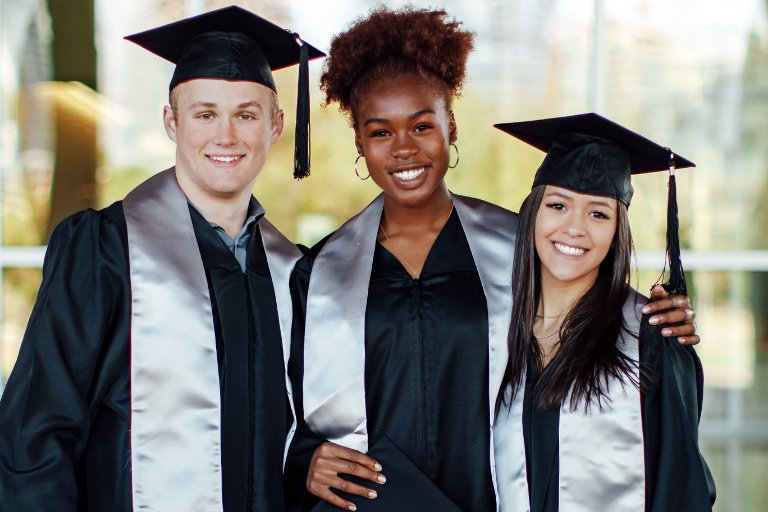The History of the High School Graduation Ceremony
The graduation ceremony is a tradition of saying farewell to not just adolescence, but also a high school and the faculty that has been a home to students for years. Yet the high school graduation ceremony procedure has changed over the years.
Today’s ceremonies are often held in stadiums and other larger venues, whereas previously, the emphasis was on smaller, more intimate affairs. The idea of the cap-and-gown is a tradition that dates back to Europe and is older than the U.S. itself.
The events surrounding a school graduation ceremony have also changed. The majority of schools in the early 1900s held various senior-specific events, such as senior plays, picnics, and the junior-senior banquet. However, these activities are rarely found in modern American high schools.
Graduation parties were also different. Many high schools would take their seniors on hiking and backpacking trips across America. One Wisconsin high school in the 1930s even took its students on a 150-mile backpacking trip of Montana.
Technology and transportation have changed the face of the school graduation ceremony, but what hasn’t changed is the importance and significance of the event as a landmark moment in a young adult’s academic life.
High School Graduation Ceremony: Order of Events
Every high school graduation order of events will differ slightly. High schools have adopted many of the elements found within college graduation ceremonies. Let’s go through the order of events found within most high schools.
Procession – The processional part of the order of events may involve a marching band, the entry of the graduating class, or the singing of the national anthem.
Greetings – Introductions from the principal, the board, and a class representative to formally kick off the event.
Speakers – Inspirational speeches from the student speaker (usually the class president), guest speaker, and a former student.
Presentation – Each student will step up to receive their high school diploma. Many schools now allow students to wear the classic cap and gown.
Finalities – Students may receive a few more words of support, and the event ends with yet more music. Once the event ends, students can mix with their fellow students, family, and friends.
Please take note each high school campus may have events and traditions specific to them included within the order of events. Before graduation, you’ll likely receive a formal high school graduation program to help you prepare.
High School Graduation Speeches
Speeches have always been an integral part of the graduation ceremony. But who gives speeches at high school graduation? Again, this usually depends on the high school.
The principal and various school officials will always have a role in giving speeches. The class president and the student speaker may be the same person, but not always. Students with exceptional achievements to be recognized may also be asked to give a speech.
Larger high schools may also ask a former student to return to provide some motivational words to the graduating class.
Unlike a political speech, every speech should be no more than a few minutes. The tone of the graduation speech typically looks to inspire and acknowledge. Injecting a tone of humor into the speech is welcome. As serious as a graduation ceremony is, these are not solemn occasions. Putting a smile on everyone’s face is perfectly acceptable and encouraged.
Which themes should you focus on if you’re writing a speech for your own ceremony?
The importance of learning, dreaming big, overcoming adversity, and being yourself are all prevalent themes. Find some additional inspiration by going over some previous graduation speeches from other students. Your school’s library may have recorded them for posterity.
Don’t be afraid to seek out a teacher if you’re struggling to work out what to say.
How Students Can Prepare for the High School Graduation Ceremony
Graduation day is a big day, and it’s not surprising students can get nervous in the days leading up to it. Following all the graduation ceremony guidelines and making a great last impression before you move to college can serve as a major headache. Graduation is a huge undertaking, and everyone wants to put their best foot forward.
Don’t Let it Become a Distraction
Graduation is something that’s typically prepared months in advance. You’ll start hearing about all the events surrounding graduation well in advance of the big day.
Never allow it to become a distraction. Keep up with your schoolwork and focus on making the grade to get into your favorite university.
Take Senior Pictures
Senior pictures aren’t just for your yearbook. They’re for you and the rest of your family to record moments in time. Whether it’s hanging out with your friends or celebrating special occasions, take the time to snap some pictures for your records. You’ll regret it in the future if you don’t!
Send Graduation Announcements
It’s traditional to send a formal high school graduation invitation to anyone you want to invite to your high school graduation.
Send your graduation announcements well in advance to family members and friends so they can mark their calendars. Invitations can be as formal or as casual as you like. There are no rules on how this works.
Prepare Your Outfit/Write Your Speech
Outfits for high school graduation are formal, even if wearing a cap and gown over the top. Guys should opt for suits and girls a formal dress. Don’t put too much thought into this part of your graduation. The most obvious choice is the right choice.
As part of the graduation ceremony procedure, you may be required to give a speech. If so, start writing it a few weeks in advance. Practice it in front of the mirror to shake out those last-minute nerves.
Plan Your Graduation Party
Graduation parties often take place with friends, family, and fellow students. Whether you’re heading to a house party or planning a formal dinner, make your plans in advance, as most graduates will have the same idea.
Try not to plan too much on graduation day itself, as most people will have too much going on. The immediate weekend after graduation is an excellent time for scheduling gatherings.
Remember, some high schools might even organize an extra party.
Graduation Ceremony Basics
At graduation ceremonies, diplomas are “conferred” or handed out to graduating seniors. The speakers selected for this event often include community dignitaries, alumni and students. The valedictorian, or highest-ranking academic student in the graduation class, usually speaks.
Many schools have to restrict attendance for space reasons, so be sure to check with your school to see if there will be limitations on the number of people you can invite to the ceremony. If your school has space constraints and you’re questioning who to include:
Try these tips:
- Talk to your friends and family members and explain that while you want them at graduation, each graduate is allowed only a limited number of guests. Most people will understand and possibly volunteer their ticket so that someone else may attend.
- Consider inviting only one grandparent or aunt or uncle from each wing of your family.
- Come up with a creative solution that will feel fair to everyone, such as drawing names.
- Let everyone who is not able to attend know they will be invited to the graduation party. Share your photos and videos to make them feel included.
Graduation Ceremony Etiquette
Some schools are all about lively and free-spirited graduation ceremonies. But before you break out the beach balls and noisemakers, consider these factors:
- What are the traditions of your particular school? If graduation is a more formal and somber rite of passage, it’s probably better to replace whooping and hollering with applause.
- In most schools, the handing out of diplomas is a quick and orderly process. Make sure that when you show pride in your graduate, you aren’t drowning out the recognition of another.
- Life’s milestones deserve everyone’s full attention. Turn off your cell phones and resist the urge to text until the entire ceremony is over. Also, remain in your seat until the last students receive their diplomas so that they feel properly acknowledged and celebrated.






